Related Literature
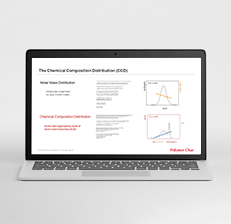
Webinar: What is Chemical Composition in Polyolefins and why it should be part of your GPC Analysis
Webinar Chemical Composition Distribution in Polylefins
Date: December 2022
Speaker: Alberto Ortín
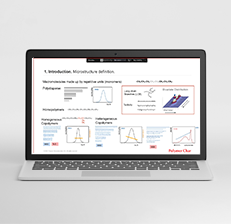
Webinar: Modern Separation Techniques for Polyolefin Microstructure Characterization
Webinar Modern Separation Techniques
Date: November 2021
Speaker: Alejandro Fernández
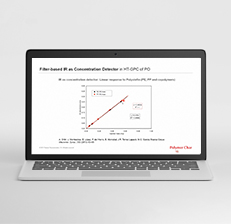
Webinar: Recent developments in the characterization of Polyolefins. An overview of modern separation techniques.
Webinar ABPol
Date: March 2021
Speaker: Alberto Ortín
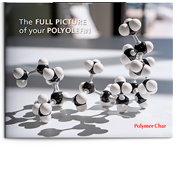
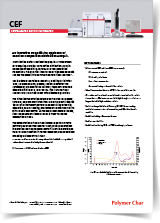
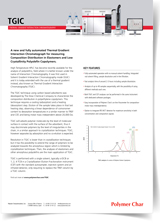
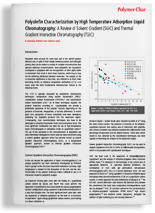
Application Note: Polyolefin Characterization by High-temperature Adsorption Liquid Chromatography (SGIC and TGIC)
Published in The Column
Vol. 10, Issue10.
June 2014, Pages 20-24
B. Monrabal
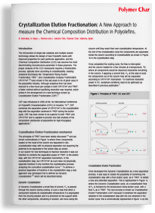
Application Note: Crystallization Elution Fractionation (CEF) in Polyolefins
Published in LCGC EU
December 2011
B. Monrabal, N. Mayo, L. Romero, J. Sancho-Tello
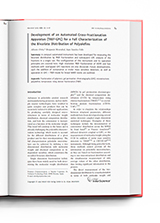
20 Years of polyolefin HPLC: Accomplishments and challenges
Published in: European Polymer Journal, Volume 200, 112491
November 2023
Authors: Harald Pasch, Paul Eselem Bungu

Composition analysis of post-consumer recycled blends of linear low- and low-density polyethylene using a solution-based technique
Published in Wiley Journal of Applied Polymer Science
May 2023
Author: Meysam Hashemnejad
Research & Development
Lyondellbasell

Chemical Composition Separation of EP Copolymers by CEF and HT-SGIC: Crystallization versus Adsorption
Published in: Macromolecular Chemistry and Physics 2013
Volume 214, Pages 2165-2171
Authors: S. Cheruthazhekatt, N. Mayo, B. Monrabal, H. Pasch.
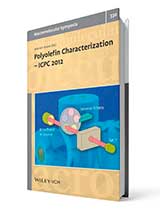
Advances in Thermal Gradient Interaction Chromatography and Crystallization Techniques for Composition Analysis in Polyolefins
Published in: Macromolecular Symposia. Polyolefin Characterization, ICPC 2012.
Volume 330, 2013, Pages 9-21, Wiley-VCH.
Authors: Benjamin Monrabal, Esther López, Loli Romero
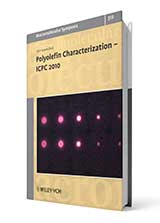
Crystallization Elution Fractionation and Thermal Gradient Interaction Chromatography. Techniques Comparison.
Published in: Macromolecular Symposia. Polyolefin Characterization, ICPC 2010.
Volume 312, 2012, Pages 115-129. Wiley-VCH.
Authors: B. Monrabal, N. Mayo, R. Cong.
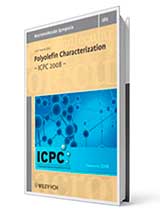
Advances in Crystallization Elution Fractionation
Published in: Macromolecular Symposia. Polyolefin Characterization, ICPC 2008.
Volume 282, 2009, Pages 14-24. Wiley-VCH.
Authors: B. Monrabal, L. Romero, N. Mayo, J. Sancho-Tello.
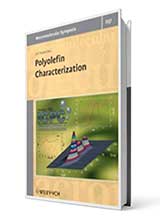
Crystallization Elution Fractionation. A New Separation Process for Polyolefin Resins
Published in: Macromolecular Symposia. Polyolefin Characterization, ICPC 2006.
Volume 257, 2007, Pages 71-79. Wiley-VCH.
Authors: B. Monrabal, J. Sancho-Tello, N. Mayo, L. Romero.
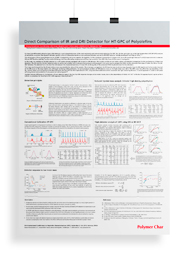
Poster: Reduction of solvent consumption in polyolefin characterization techniques
Poster
Presented at the 8th ICPC
2023

Poster: Advances in Dynamic Crystallization technique for the characterization of the Chemical Composition Distribution
Poster
Presented at the 8th ICPC
2023

Poster: Supporting the sustainability of polyolefins developing analytical methods for recycled materials
Poster
Presented at the 8th ICPC
2023

Poster: Characterization of Ethylene Vinyl Acetate copolymers by chemical composition distribution and molar mass distribution techniques
Poster
Presented at the 7th ICPC
2018

Poster: Improvements in Sample Preparation of Polyolefins to prevent Polymer Degradation prior to GPC/SEC and CEF analysis
Poster
Presented at the 4th ICPC
2012

Poster: Advances in Polyolefin Characterization – CFC and HT-HPLC Techniques
Poster Presented at the 8th International Colloquium on Heterogenous Ziegler-Natta Catalysts
2012

Poster: High Temperature HPLC for Polyolefin Characterization
Poster
Presented at Pitton
2011
Document Request
To receive a copy by email please check the boxes above and complete the following form. Thank you for your interest.